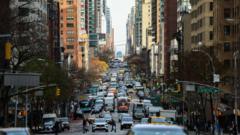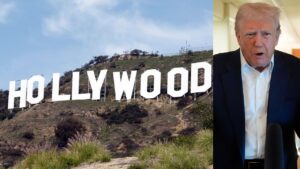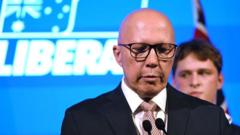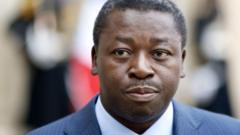New York City is set to introduce a congestion charge for vehicles in a bid to manage traffic congestion and fund public transit. The scheme has sparked debates, with significant opposition from various stakeholders, including notable figures such as President-elect Donald Trump, as well as concerns raised by local business and commuter groups.
New York City Implements Historic Congestion Charge to Tackle Traffic

New York City Implements Historic Congestion Charge to Tackle Traffic
The first congestion charge scheme in the U.S. launches in New York City, prompting mixed reactions from citizens and officials.
New York City is making headlines as it becomes the first city in the United States to implement a congestion charge scheme aimed at alleviating its chronic traffic woes. Beginning on Sunday, car owners will incur a fee of up to $9 per day to enter designated congestion zones, which cover highly trafficked areas south of Central Park, including iconic locations such as the Empire State Building and Times Square.
The initiative, intended to raise billions for the city's beleaguered public transport network, has been met with considerable opposition. Critics argue that the fees could disproportionately impact low- and middle-income residents who rely on personal vehicles. Among the staunch opponents is President-elect Donald Trump, who, as a lifelong New Yorker, has voiced strong resistance and even pledged to terminate the program upon taking office.
Governor Kathy Hochul first proposed the congestion charge scheme two years ago, but its rollout faced delays due to backlash from commuters and business owners concerned about the potential economic consequences. Some alterations to the initial plan had to be made as officials sought to address these concerns. Under the final framework, non-commuting buses and small trucks will face peak-time entry fees of $14.40, while larger trucks and tourist buses will incur charges of $21.60.
Despite the anticipated benefits in reducing vehicular traffic—especially highlighted by last year's ranking as the world's most congested urban area—the scheme has raised environmental and economic concerns. A recent legal effort by officials from neighboring New Jersey aimed to halt the implementation of the charge, citing potential negative effects on adjoining communities, but this request was rejected by the courts.
With New York City experiencing an average travel speed of just 11 mph during peak hours, many stakeholders view the congestion charge as a necessary step forward. However, as the debate continues, it remains to be seen how the policy will shape not only traffic patterns but also the lives of those who traverse the city.




















